第252章 CHAPTER LXII. BEFORE THE BATTLE.(3)
He called in a loud voice for the general commanding the artillery; he repeated this call three times, and every time his voice became more threatening, and his face turned paler.
But the officers he called for did not appear. The emperor did not say a word; his right shoulder was quivering, and his eyes flashed fire.
He commanded all the gunners in a loud voice to come to him, and ordered them to get their tools and light their large lanterns.
The emperor had himself seized the first lantern that was lighted.
"Now take your pick-axes and spades," he shouted. "We must widen the gorge in order to get the field-pieces off again."
It was hard and exhausting work. Large drops of perspiration ran down from the foreheads of the gunners, and their breath issued painfully from their breasts. But they worked on courageously and untiringly, for the emperor stood at their side, lantern in hand, and lighted them during their toilsome task.
At times the gunners would pause and lean on their spades--not, however, for the purpose of resting, but of looking with wondering eyes at this strange spectacle, this man with his pale marble face and flaming eyes, this emperor who had transformed himself into an artillery officer, and, lantern in hand, lighted his gunners.
["Memoires du Duc de Rovigo," vol. ii., p. 278.]
Only when the wagons and field-pieces, thanks to the energy of the gunners, had commenced moving again, the emperor left the gorge and returned to his bivouac. He took his supper hastily and thoughtfully; then he summoned all his generals and gave them their instructions for to-morrow's battle as lucidly and calmly as ever.
"And now let us sleep, for we must be up and doing to-morrow morning at four o'clock!" said the emperor, dismissing his generals with a winning smile.
A few minutes later profound silence reigned all around; the emperor lay on his straw and slept. Roustan sat at some distance from him, and his dark eyes were fixed on his master with the expression of a faithful and vigilant St. Bernard's dog. The flames of the bivouac- fire enveloped at times, when they rose higher, the whole form of the emperor in a strange halo, and when they sank down again the shades of the night shrouded it once more. Four sentinels were walking up and down in front of the emperor's bivouac.
Morning was dawning; it was the morning of the 14th of October, 1806.
The Prussians were still asleep in their tents. But the French were awake, and the emperor was at their head.
At four o'clock, according to the orders Napoleon had given, the divisions that were to make the first attack were under arms.
The emperor on his white horse galloped up; an outburst of the most rapturous enthusiasm hailed his appearance.
"Long live our little corporal! Long live the emperor!" shouted thousands of voices.
The emperor raised his hat a little and thanked the soldiers with a smile which penetrated like a warm sunbeam into all hearts. He waved his right hand, commanding them to be silent, and then his powerful, sonorous voice resounded through the stillness of the autumnal morning.
"Soldiers," he shouted in his usual imperious tone, "soldiers, the Prussian army is cut off, like that of General Mack a year ago at Ulm. That army will only fight to secure a retreat and to regain its communications. The French corps, which suffers itself to be defeated under such circumstances, disgraces itself. Fear not that celebrated cavalry; meet it in square and with the bayonet!"
"Long live the emperor! Long live the little corporal!" shouted the soldiers jubilantly, on all sides. The emperor nodded smilingly, and galloped on to give his orders here and there, and to address the soldiers.
It was six o'clock in the morning; the Prussians were still asleep!
But now the first guns thundered; they awakened the sleeping Prussians.